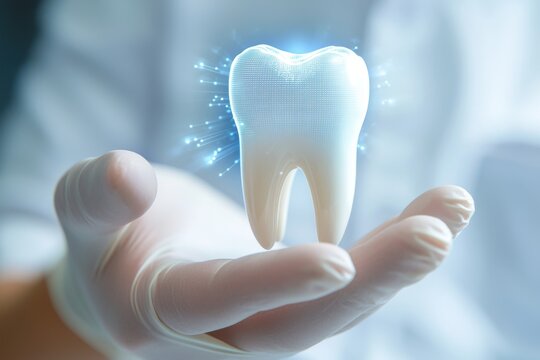The Connection Between Oral Health and Workplace Productivity
Proper oral hygiene goes beyond simple appearance and is crucial for general physical well-being and productivity at work. Dental problems like cavities, gum disease, or ongoing bad breath cause considerable disturbances among employees. These conditions aren’t just uncomfortable; they are often painful and demand time off work for appointments, directly leading to productivity losses. Additionally, inadequate dental health has been associated with serious ailments, highlighting the importance of consistent care. For employees covered under specific healthcare plans, finding FEDVIP dental providers ensures they can access regular, preventative care, reducing the risk of more complex dental complications. When employees are assured that their dental health is well-managed, they can focus better on their tasks, contributing to a more productive environment.
Common Dental Problems Affecting Employees
Common dental problems can significantly impact an employee’s ability to work effectively. While these problems may initially appear trivial or manageable, they can distract employees with constant pain or discomfort, reducing their ability to concentrate and perform duties efficiently. More serious complications can result in infections and tooth loss, deeply affecting an employee’s health and self-esteem. It could lead to an aversion to social interactions or presentations, key components of many roles. Untreated dental conditions are prevalent among adults, causing them to lose over 34 million school and work hours annually. Equipping employees with knowledge about preventative care, such as effective brushing methods and routine check-ups, can directly address these challenges, fostering a healthy and dynamic workforce.
Benefits of Promoting Oral Health at Work
Promoting oral health in the workplace offers extensive benefits beyond reducing health-related absences. When a company invests in its employees’ oral health, it activates a ripple effect that can improve job satisfaction, elevate team morale, and enhance productivity. Prevention is key; stopping dental issues before they require significant intervention helps workers avoid discomfort and extensive treatment costs. Moreover, showcasing this aspect of care in employee benefits highlights the organization’s commitment to total employee well-being, nurturing an appreciative and loyal workforce. Initiatives like full or partial dental insurance coverage, regular health workshops, and access to oral health resources demonstrate the company’s investment in their employees’ long-term wellness and success, fostering a culture of healthy living that resonates with both present and prospective employees.
Strategies for Implementing Oral Health Policies
Implementing effective oral health policies within the workplace can significantly elevate employee well-being and productivity. Companies can start by promoting flexible scheduling to accommodate dental appointments, easing the stress for employees who might otherwise postpone care due to work commitments. Stocking pantries with tooth-friendly snacks promotes better health and indirectly supports dental care by reducing sugar intake. Comprehensive dental plans that include regular exams, cleanings, and prompt treatments protect against more severe health issues. These measures collectively reinforce a culture of well-being, emphasizing that employee health is a priority. Organizations can effectively demonstrate genuine concern for their workforce by supporting preventative services, encouraging routine check-ups, and promoting a balance between professional responsibilities and health maintenance.
Organizing Effective Dental Health Workshops
To truly educate and inspire employees about the importance of oral health, organizing workshops led by dental professionals can be highly impactful. These sessions should be engaging, providing employees with actionable insights into maintaining optimal dental hygiene. Engaging experts to deliver these workshops ensures that employees receive accurate information, addressing myths and highlighting best practices. Demonstrations on proper brushing techniques or interactive sessions on the benefits of balanced nutrition for oral health can spark interest and motivate change. Providing take-home resources further reinforces the workshop’s teachings, connecting learning with real-world practice and encouraging participants to enhance their oral health habits actively. Companies can significantly influence long-term well-being by fostering a learning environment that equips employees with the resources to prioritize their health.
The Role of Technology in Dental Care
Technology’s role in dental care is becoming increasingly pivotal in breaking barriers and making routine care more accessible. Innovations like smart toothbrushes, which promote reading effectiveness, and apps that track oral hygiene habits aid in maintaining regular, thorough cleaning routines. Online platforms that offer virtual consultations provide employees, especially those with limited access to physical dental services, an opportunity to connect with dental experts conveniently. Implementing such technological aids in the workplace can foster personal accountability among employees for their oral health. Coupled with company initiatives, such as reminders through digital platforms or wellness apps, these technologies help solidify oral care as an integral component of an employee’s health regime, paving the way for healthier dental practices.
Employee Feedback and Continuous Improvement
Gathering feedback from employees on oral health programs is an integral part of refining and ensuring the success of these initiatives. Engaging employees for feedback helps current programs to be more effective and cultivates a culture where employees feel heard and valued. Conducting surveys, providing anonymous suggestion forms, or facilitating open feedback sessions empowers employees to communicate their experiences openly. This active feedback loop identifies strengths and areas for improvement, prompting iterative enhancements that keep the program relevant and effective. By strongly emphasizing continuous improvement, organizations demonstrate an enduring commitment to the health and satisfaction of their employees, which is instrumental in both personal and organizational growth.
Conclusion: The Path Forward
Promoting oral health in the workplace is not just a beneficial strategy but is necessary for modern companies seeking to safeguard employee well-being and catalyze productivity. Organizations can foster a supportive atmosphere that improves health metrics and draws in top talent by adopting thorough oral health policies and utilizing the latest technology. As businesses continue to recognize the significant influence of dental care on overall health and workplace efficiency, they position themselves as leaders in health advocacy. By prioritizing these strategies, a company commits to nurturing an engaged, loyal, healthy team, securing a promising outlook for everyone involved.


